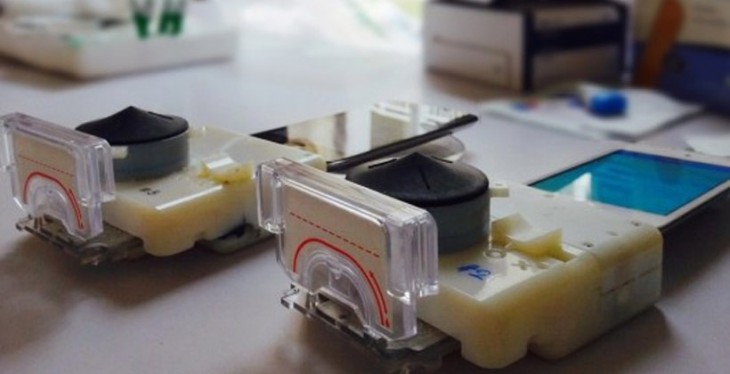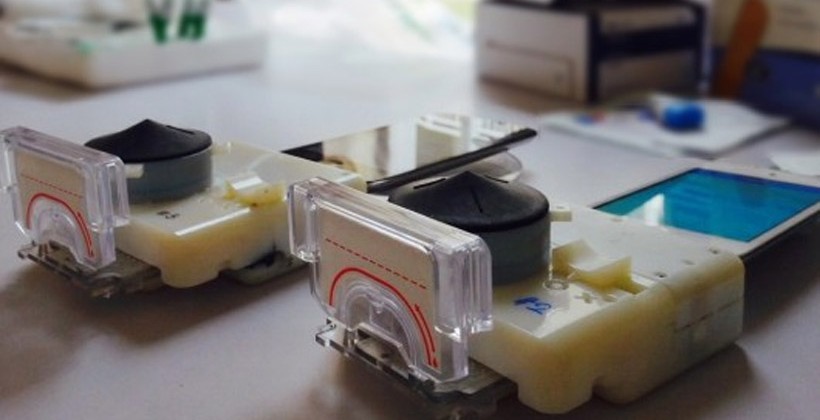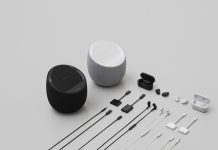 From our Definitely Unusual pile comes this news from the US: Columbia University in New York has developed a new hardware component that’s affordable, connects to a smartphone, and can diagnose serious infectious diseases in the people it tests. At present, the sensor can somehow detect HIV and syphilis. It uses disposable plastic cassettes to achieve this that are loaded with reagents which detect HIV antibodies.
From our Definitely Unusual pile comes this news from the US: Columbia University in New York has developed a new hardware component that’s affordable, connects to a smartphone, and can diagnose serious infectious diseases in the people it tests. At present, the sensor can somehow detect HIV and syphilis. It uses disposable plastic cassettes to achieve this that are loaded with reagents which detect HIV antibodies.
As well as HIV, the reagents can also detect treponemal-specific and non-treponemal antibodies which are usually present in those infected with syphilis. The scientists involved claim that this replaces costly tests which require equipment costing over $USD 18,000, whereas the disposable sensor costs around $34 to make, and probably not much more to buy (when or if it enters mass production).
Internally, it’s quite clever. This disease sensor operates in part by the user pressing down on a negative pressure chamber inside that moves the sequence of reagents that are stored in the cassette. Freakishly clever, simple stuff.
The sensor itself is fairly widely compatible, plugging into the audio jack of a smartphone enabling the transmission of data. The tests take around 15 minutes to run, and the one tests screens multiple diseases. I guess it runs off a prick of your finger to draw blood, because the reagents have to react to something.
Is this the future of medicine? Handheld devices powered by smartphones which can check for infectious diseases much quicker than the traditional tests?




